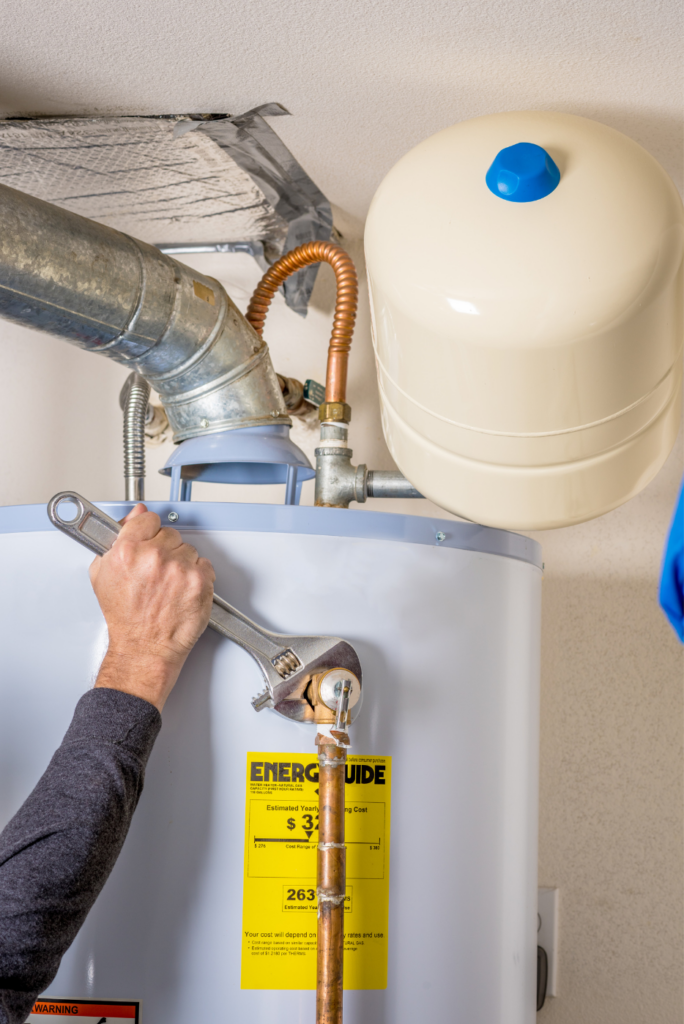Action Plan For Common Water Heater Malfunctions
Action Plan For Common Water Heater Malfunctions
Blog Article
How do you actually feel in relation to Common Problems with Tank Water Heaters?

Envision beginning your day without your routine hot shower. That currently establishes an inadequate tone for the rest of your day.
Every home needs a reputable water heater, but just a couple of know just how to take care of one. One easy method to maintain your water heater in leading form is to check for mistakes routinely and also fix them as quickly as they appear.
Bear in mind to turn off your hot water heater prior to smelling around for faults. These are the water heater faults you are most likely to experience.
Water as well warm or as well chilly
Every hot water heater has a thermostat that figures out how warm the water obtains. If the water entering into your home is too hot in spite of setting a practical optimum temperature level, your thermostat could be faulty.
On the other hand, as well cold water may result from a failed thermostat, a busted circuit, or inappropriate gas flow. For instance, if you use a gas hot water heater with a busted pilot burner, you would get cold water, even if the thermostat is in excellent problem. For electric heating units, a blown fuse might be the offender.
Not nearly enough hot water
Hot water heater can be found in many sizes, depending upon your hot water needs. If you run out of warm water prior to every person has actually had a bath, your water heater is also little for your family size. You must take into consideration setting up a larger water heater container or selecting a tankless water heater, which uses up less space and also is much more sturdy.
Unusual sounds
There are at least five type of noises you can learn through a water heater, yet the most typical interpretation is that it's time for the water heater to retire.
To start with, you must recognize with the normal sounds a hot water heater makes. An electrical heating unit may sound different from a gas-powered one.
Popping or banging sounds generally indicate there is a slab of debris in your storage tanks, as well as it's time to cleanse it out. On the other hand, whistling or hissing audios may simply be your valves letting some pressure off.
Water leaks
Leaks can originate from pipes, water links, shutoffs, or in the worst-case situation, the storage tank itself. In time, water will wear away the container, and find its escape. If this happens, you need to change your hot water heater immediately.
Nonetheless, before your change your entire container, be sure that all pipelines remain in area which each shutoff works perfectly. If you still require assistance recognizing a leak, call your plumber.
Rust-colored water
Rust-colored water indicates one of your hot water heater elements is rusted. Maybe the anode rod, or the tank itself. Your plumber will have the ability to determine which it is.
Warm water
Despite how high you set the thermostat, you will not get any kind of warm water out of a heating system well past its prime. A water heater's efficiency may lower with time.
You will certainly also obtain lukewarm water if your pipelines have a cross link. This indicates that when you activate a tap, warm water from the heating system streams in together with regular, cold water. A cross connection is simple to place. If your warm water faucets still run after shutting the water heater shutoffs, you have a cross link.
Discoloured Water
Rust is a major root cause of unclean or discoloured water. Rust within the water storage tank or a falling short anode pole can trigger this discolouration. The anode pole shields the storage tank from rusting on the within and must be checked annual. Without a pole or a properly working anode rod, the hot water quickly wears away inside the tank. Call a professional water heater specialist to figure out if replacing the anode pole will deal with the trouble; if not, replace your hot water heater.
Final thought
Ideally, your water heater can last 10 years prior to you need an adjustment. Nevertheless, after the 10-year mark, you may experience any of these mistakes much more on a regular basis. At this point, you need to include a new hot water heater to your spending plan.
How To Troubleshoot 3 Common Water Heater Problems in Twin Cities
The Water Heater Is Leaking
A leaky cold water inlet valve A loose pipe fitting A leaky temperature and pressure relief valve A corroded anode rod A cracked tank Turn Off Your Water Heater:
Shut off your gas water heater by turning the gas valve on the unit to the “OFF” position. Shut off your electric water by switching its power off at your electrical panel. Look for a two-pole breaker labeled “water heater” and turn it to the “OFF” position. Move the ball valve connected to the water heater to be perpendicular to the piping at a 90° angle. Look for the Leak:
Depending on whether the water is coming from the tank's top or bottom, you’ll want to look for the leak in different locations.
If the leak comes from the top of the tank, carefully look for water escaping from the cold water inlet valve or loose pipe fittings. Rusted hot and cold water valves can have loose connections with the tank, with water leaking out of them.
https://mspplumbingheatingair.com/blog/how-to-troubleshoot-3-common-water-heater-problems
As an avid person who reads about Water Heaters Problems, I think sharing that piece of content was really helpful. Are you aware of anybody else who is involved in the subject? Feel free to promote it. Thanks for going through it.
Set Up An Appointment Report this page